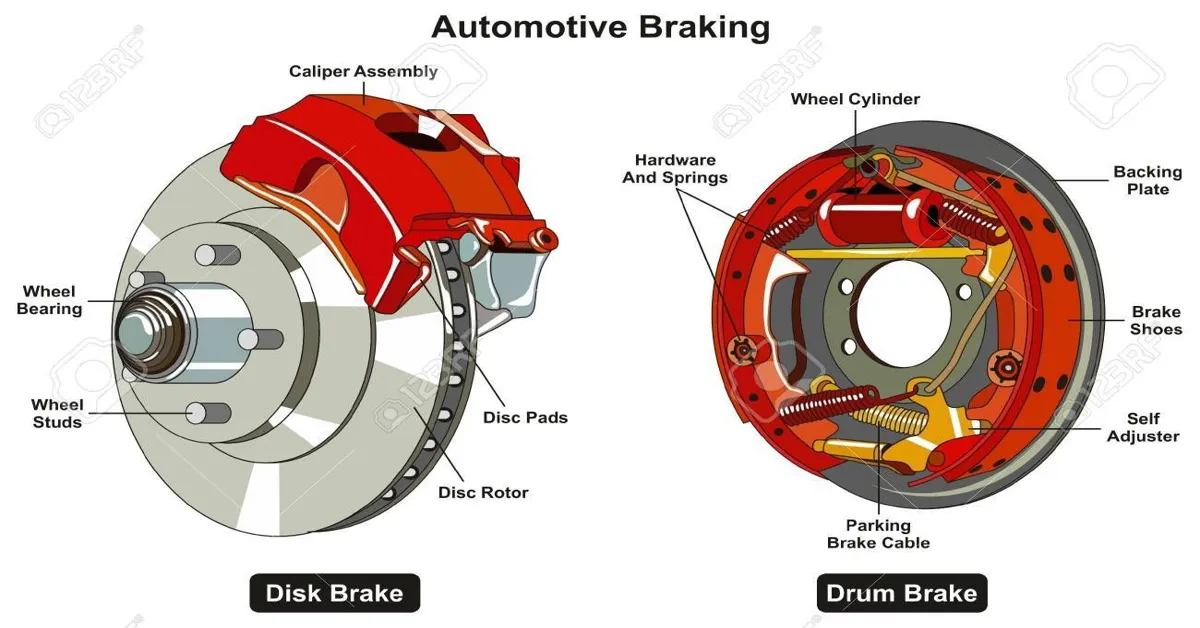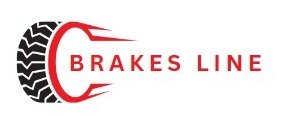As you press down on the brake pedal, the car comes to a smooth stop, thanks to the brake line. It’s a simple yet crucial component of your vehicle that ensures your safety on the road. But have you ever wondered about the technology behind it? How has it evolved over the years? And what are the latest innovations in the world of brake lines? In this blog, we’ll take a deep dive into the fascinating world of brake line technology and explore everything you need to know, from its history to its future.
So fasten your seatbelt and join us on this thrilling ride through the evolution of brake lines.
Key Takeaway
- The brake line is a crucial component of a vehicle that ensures safety on the road
- The technology behind brake lines has evolved over the years
- The latest innovations in brake line technology will be explored in this blog
- This article takes a deep dive into the history and future of brake lines
- Join us on a thrilling ride through the evolution of brake lines
Understanding the Importance of Brake Lines
One of the most crucial components of a vehicle’s braking system is the brake line. This vital part carries brake fluid from the master cylinder to the brake calipers, allowing for proper braking function. Without a functional brake line, a vehicle’s brakes would fail, leading to potential accidents and safety hazards.
The brake line is typically made of metal and is designed to withstand high pressure and heat generated during braking. Over time, however, it can become corroded or damaged, leading to leaks and loss of brake fluid. This can significantly affect the performance of a vehicle’s braking system and compromise safety on the road.
To ensure the proper functioning of your vehicle’s brakes, it is important to regularly inspect the brake line for any signs of wear and tear. This includes checking for rust or corrosion, as well as any visible cracks or leaks. If any issues are found, it is crucial to have the brake line replaced immediately by a professional mechanic.
In addition to regular inspections, it is also important to use high-quality brake fluid and to flush and replace it according to the manufacturer’s recommended schedule. This will help prevent corrosion and prolong the life of the brake line. In conclusion, the brake line may seem like a small component, but it plays a crucial role in the overall safety and performance of a vehicle’s braking system.
By regularly inspecting and maintaining it, drivers can ensure a smooth and safe driving experience. Don’t neglect this important part of your vehicle and always address any issues with the brake line promptly to avoid potential hazards on the road.

Signs of a Worn Brake Line
When it comes to the safety and performance of your vehicle, the brake line is a crucial component that should not be overlooked. The brake line is responsible for carrying brake fluid from the master cylinder to the brake calipers, allowing for the proper function of the braking system. Any damage or failure in the brake line can lead to a loss of brake pressure, resulting in longer stopping distances and potentially dangerous situations on the road.
To understand the importance of the brake line, it’s helpful to think of it as the lifeline of your braking system. Just like how a kink in a garden hose can limit the flow of water, a damaged or clogged brake line can restrict the flow of brake fluid, affecting the overall performance of your brakes. This can be especially dangerous in emergency situations where you need to come to a quick stop.
Regular maintenance and inspection of your brake line is crucial to ensure its proper functioning. Any signs of wear and tear, such as cracks, leaks, or corrosion, should be addressed immediately to prevent potential brake failure. It’s also important to use high-quality brake fluid and replace it according to the manufacturer’s recommended schedule to keep your brake line in top condition.
How to Maintain Your Brake Lines
When it comes to your vehicle’s braking system, every component plays a crucial role in ensuring your safety on the road. The brake line, in particular, is responsible for transferring the hydraulic pressure from the brake pedal to the brake calipers, causing the pads to clamp down on the rotors and slow down or stop your vehicle. This small but mighty part is often overlooked, but a damaged brake line can result in a complete brake failure, putting you and others at risk.
The brake line is typically made of steel and is designed to withstand high pressures and extreme temperatures. However, over time, it can become corroded or damaged due to exposure to road debris, salt, and moisture. This can lead to leaks or weak spots in the line, compromising its ability to transfer the necessary pressure to the brakes.
If you notice any signs of a damaged brake line, such as a soft or spongy brake pedal, decreased braking power, or visible leaks, it’s crucial to have it inspected and repaired immediately. A professional mechanic can assess the condition of your brake line and replace it if necessary to ensure your vehicle is safe to drive. Regular maintenance and inspections of your braking system, including the brake line, can prevent potential issues and keep you safe on the road.
So, the next time you hit the brakes, remember the importance of the brake line and make sure it’s in top condition for optimal braking performance.
Read More
https://brakesline.com/brake-line-flare/
https://brakesline.com/brake-line-size-2007-f150/
https://brakesline.com/brake-line-swaging-kit/
https://brakesline.com/bmw-brake-line/
Statistical Information
| The brake line on a car is responsible for transmitting hydraulic pressure from the master cylinder to the brake calipers or drums. | The most common cause of brake line failure is corrosion, which can be caused by exposure to road salt, moisture, and other environmental factors. | In the United States, approximately 1.7 million vehicles are recalled each year due to brake line issues. |
| Brake line failure can result in loss of braking power, making it a serious safety concern for drivers. | Regularly inspecting and replacing worn or damaged brake lines is crucial for maintaining the safety and functionality of a vehicle’s braking system. | According to the National Highway Traffic Safety Administration (NHTSA), brake failure is a contributing factor in about 22% of all car accidents. |
| Brake lines are typically made of steel or rubber, with steel lines being more durable and resistant to corrosion. | However, rubber lines are more flexible and can better withstand extreme temperatures, making them a popular choice for high-performance vehicles. | Brake lines should be replaced every 3-5 years or as recommended by the vehicle manufacturer to ensure optimal performance. |
| It is important to use high-quality brake lines and to have them installed by a professional mechanic to ensure proper functioning and safety. | In addition to regular inspections and replacements, it is important to avoid harsh driving conditions, such as excessive braking or driving on rough terrain, to prolong the life of brake lines. | Proper maintenance of brake lines can save drivers from costly repairs and potentially dangerous accidents. |
| The cost of replacing a single brake line can range from $50 to $200, depending on the make and model of the vehicle. | Brake line issues are more common in older vehicles, highlighting the importance of regular maintenance and inspections as a car ages. | In addition to being a safety concern, malfunctioning brake lines can also result in expensive fines if detected during a vehicle inspection. |
Important Notice for Readers
As you read our article about brake lines, we would like to bring your attention to the importance of regularly checking and maintaining your brake lines. These lines are a crucial component of your vehicle’s braking system and any damage or wear and tear can lead to serious consequences. We urge you to pay attention to any signs of leakage, corrosion, or damage in your brake lines and get them inspected by a professional immediately.
Ignoring these warning signs can result in brake failure and put you and others on the road at risk. Don’t wait for a malfunction to occur before taking action. Stay safe and keep your vehicle in top condition by regularly checking and maintaining your brake lines.
Frequently Asked Questions
What is a brake line and what role does it play in a car’s braking system?
A brake line is a tube or hose that carries brake fluid from the master cylinder to the brake calipers or wheel cylinders. It plays a crucial role in transferring hydraulic pressure to the brakes, allowing the car to slow down or stop.
How often should brake lines be inspected and replaced?
Brake lines should be inspected at least once a year and replaced every 3-5 years, as they can deteriorate over time due to exposure to heat and moisture.
Can a damaged brake line affect the overall performance of a car’s braking system?
Yes, a damaged brake line can greatly affect the performance of a car’s braking system, as it can cause a loss of hydraulic pressure and make it difficult to stop the car effectively.
Are there any warning signs that indicate a brake line may need to be replaced?
Yes, some warning signs include spongy or soft brake pedal, leaking brake fluid, and a decrease in braking power. If you notice any of these signs, it is important to have your brake lines checked by a mechanic.
Conclusion
After discussing the various aspects of brake lines, it is clear that they play a crucial role in the functioning and safety of a vehicle. From their materials to their installation and maintenance, brake lines are an important component that should not be overlooked. As car owners, it is our responsibility to ensure that our brake lines are in good condition to prevent any accidents.
Therefore, it is essential to regularly check and maintain our brake lines to ensure the safety of ourselves and others on the road. Let us all make brake line maintenance a top priority for the sake of our own safety and the safety of others.
